Heute sind wir mit dem Bus nach Selfoss gefahren, um Gunnar zu treffen, den Leiter von Zelsíuz. Er ist verantwortlich für die Jugendzentren in der Region und für die Projekte, die dort umgesetzt werden. Wir haben über die Angebote gesprochen, die das Zentrum für Kinder und Jugendliche organisiert. Dazu gehört zum Beispiel eine Nachmittagsbetreuung für Grundschulkinder, deren Eltern noch arbeiten müssen, wenn die Schule vorbei ist. Außerdem gibt es kleine Betreuungsgruppen in Zusammenarbeit mit Schulen, die sich speziell an Kinder mit besonderen Bedürfnissen oder an Schüler*innen richten, die durch soziale Ängste oder andere Schwierigkeiten im Schulalltag Probleme haben. Gunnar erklärte uns auch, dass er langfristig jede Schule mit einem Jugendzentrum verknüpfen möchte – damit alle Kinder in ihrem direkten Umfeld einen Ort haben, an dem sie Anschluss finden können und an dem sie sich sicher fühlen, weil der Weg dorthin kurz und vertraut ist.
Wir haben außerdem gelernt, wie wichtig internationale Freiwilligenarbeit ist und welche neuen Ideen junge Erwachsene mitbringen, wenn sie hier im Jugendzentrum mitarbeiten.
Gunnar machte einen starken Punkt: Gute Jugendarbeit zahlt sich für die Kommunen langfristig aus. Sie spart Kosten, die ansonsten durch Strafverfahren, Vandalismus oder Arbeitslosigkeit entstehen würden. Er betonte, wie wichtig es ist, Jugendlichen Perspektiven zu geben – einen Ort, an dem es immer jemanden gibt, der zuhört und unterstützt. Besonders für die, die die Schule beendet haben, ohne Arbeit sind und sonst durchs Raster fallen würden. Wir glauben, dass die deutsche Politik und auch die EU von dieser Perspektive profitieren könnten: Mehr in Kinder und Jugendliche investieren heißt auch, den Gemeinden etwas zurückzugeben. Gunnar sprach außerdem über die finanzielle Situation und machte deutlich, dass Jugendarbeit hier in Island im Vergleich zu vielen anderen europäischen Ländern viel höher geschätzt und finanziert wird. Für uns war das fast unglaublich. Und es zeigte einmal mehr: Politische Beteiligung ist der Schlüssel zu Veränderung – und in Deutschland passiert da immer noch zu wenig.
Danach hatten wir Mittagspause in einem berühmten isländischen Hotdog-Laden, wo wir eine lokale Spezialität probierten: den frittierten Hotdog. Ein dringend benötigter Break, um das Gehörte sacken zu lassen und über die Diskussion nachzudenken.
Nach dem Mittagessen ging es weiter ins Rathaus von Selfoss, wo wir Bragi, den Bürgermeister und Mitglied der Unabhängigkeitspartei, trafen. Mit ihm führten wir eine intensive Diskussion über den Gender-Pay-Gap in Island, der – entgegen der weit verbreiteten Meinung – durchaus existiert. Wir sprachen außerdem über die Finanzlage in Selfoss, über Migration, Abtreibung und die EU. Spannend war zu sehen, wie unterschiedlich Politiker*innen über bestimmte Themen reden und wie ihre Werte sich von denen der anderen Gesprächspartner unterschieden.
Gerade die EU ist ein heißes Thema hier. Viele Menschen sind noch nicht ausreichend über Vor- und Nachteile eines Beitritts informiert – etwas, das dringend aufgearbeitet werden muss, bevor die wahrscheinlich im nächsten Jahr anstehende Abstimmung stattfinden kann. Selbst innerhalb der Parteien ist die Meinung dazu stark gespalten.
Interessant war auch, wie internationale Konflikte in Island wahrgenommen werden und wie man über die USA und deren Militär denkt. Weniger Sorge bereitet den Menschen Trump und seine radikale Politik – viel stärker ist die Angst vor einem möglichen Angriff Russlands. Gleichzeitig macht die verstärkte Präsenz der US-Armee auf der Insel viele Menschen nervös.
Was das Thema Gender-Pay-Gap betrifft, glauben viele Isländerinnen, dass er praktisch nicht mehr existiert, oft ist von nur 0,1 % die Rede. Tatsächlich ist die Lücke aber in manchen Branchen noch bis zu 10 % hoch. Trotzdem ist die Gleichstellung hier deutlich weiter vorangeschritten als in Deutschland. Beim Thema Abtreibungsrechte erzählte uns Bragi, dass es in Island kaum politische Parteien gibt, die das Recht grundsätzlich infrage stellen. Der Streit dreht sich eher um die Frage, wie lange ein Schwangerschaftsabbruch erlaubt sein soll. Aktuell liegt die Grenze bei 22 Wochen, doch es wird diskutiert, ob diese Frist verkürzt werden soll. Migration wiederum ist ein Thema, das zunehmend auf die Tagesordnung kommt – und nicht immer in positiver Weise. Selfoss braucht dringend mehr Wohnraum, um alle unterzubringen, die hierherziehen. Die Verantwortung dafür wird jedoch oft Migrantinnen zugeschoben. Kurz gesagt: Auch in Island sind die rechten Tendenzen angekommen, die wir aus vielen anderen Teilen Europas kennen.
Später trafen wir Elísabet, Mitglied des Bildungsausschusses und der Sozialdemokratischen Partei. Sie erzählte uns von der Schulsituation in der Gemeinde. Politik als eigenes Unterrichtsfach gibt es in Island selten, dafür aber Politik-Wochen, in denen Schülerinnen Demokratie praktisch erlernen – indem sie eigene Parteien gründen und Wahlen durchführen. Im Bildungsausschuss selbst können Schülerinnen, Lehrer*innen und Eltern direkt mitreden und an Entscheidungen zur Schulpolitik beteiligt sein.
Zum Abschluss des Tages teilten wir uns in Kleingruppen auf und gingen zum Abendessen in die Familien unserer isländischen Freund*innen. Es war ein wunderschöner Ausklang eines langen Tages, der uns auch einen persönlichen Einblick in das Familienleben hier gab. Bei Pizza, Enchiladas oder Eis sprachen wir über die politischen Herausforderungen, die Island und Deutschland gemeinsam haben: Wohnungsknappheit, die Frage nach gerechter Besteuerung und die wachsende Radikalisierung unter Jugendlichen. Und genau hier zeigte sich der Kern unseres Austauschs: Indem wir uns kennenlernen und Freundschaften schließen, setzen wir ein kleines Zeichen gegen Spaltung und für Gemeinschaft.
Karlotta und Pauline
Today we took the bus to selfoss to meet Gunnar, the leader of Zelsīuz. He is responsible for the youth centres in the area and the things happening there. We talked about the project the Center does for the children and teenagers in the area. They offer after school care to kids that go to the elementary school, so that they have someone look after them when school is over and the parents can’t pick them up yet. They also work in small care groups with schools, focusing on children with special needs or students that have trouble in school through things such as social anxieties and the likes. He told us that he plans on having every school be connected to a youth centre one day to find a diving place for all the kids to connect to that is close to their living realities, school and where they feel safe going to because of short distances.
We learned about the importance of international volunteer work and the new ideas these young adults bring when they come to volunteer with the youth centre here.
Gunnar made the excellent point that local politics profit from good youth work long term because it saves money in the municipalities that they would have to spend on criminal charges, vandalism or unemployment otherwise. He said that it gives them perspective and a place to go to where there’s always someone to offer support and how valuable that is. Especially when you’re out of school, without a job and would fall through the grid otherwise. We believe German politics and the EU could profit from that perspective and put more into the children/ young adults, they need it and it also gives to the communities! He also told us about the financial situation and how much higher work with kids is valued in comparison to other countries in Europe. It’s insane. It once again made it obvious to us that political participation is the key for change, we need to invest in this and Germany does too little of it.
We then went to have lunch at a famous Icelandic hotdog store, where we were able to try a ata favourite: a deep fried hotdog. It was a much needed break that helped us evaluate the talk we had and answer questions that arose.
After Lunch we went to the city hall to meet Bragi, the current Mayor of Selfoss and member of the independence party and had an intensive discussion about the gender- pay gap in Iceland, that apparently does exist, even though it’s not that present in every day discussions, as well as the financial situation in Selfoss, migration, abortion and the EU. It was really interesting to see how different politicians talk about certain topics and also to compare the values with other politicians we spoke to.
The EU is a hot topic here, and many people are still not informed about the pro- and cons of joining, which is something that needs to be worked on before the possible vote that is most probably gonna happen next year and even in the parties the opinions are very divided on that front.
It’s also interesting to hear how different conflicts in the world are perceived here and the relationship with the U.S. and their military. Trump’s radical political opinion is not the first worry here, people are more afraid of a possible attack from Russia but having more US military stationed on the island does make people nervous. Most people believe that Iceland does not have a gender pay gap anymore, they believe it is only about 0,1 % but we later found out that it is actually much higher, up to 10% depending on the sector you work in but equality is far more advanced here than in Germany. Bragi also told us that abortion right ist self is not a topic that needs to fight for validation in politics, most parties believe in the right of abortion, but they fight over how long you are allowed to. The current regulation days up to 22 Weeks, but there is talk now about shortening that period. Migration also becomes more and more of a topic here and not in a good way. The municipality needs housing to accommodate everyone moving here and the blame for that mostly befalls people that might are to Iceland. We learned that there is the opinion of too many people moving to Iceland. In short, the right wing perspectives that also spread across Europe now arrived in Iceland too.
After that we met Elisabet, who sits in the cultural and educational committee and is also a member of the Social Democratic Party of Iceland. She told us a bit about the educational situation in the Municipality. It is apparently not common to have politics as a subject in Iceland, but the schools usually have a politics week where they learn to live democracy though forming their own parties and voting. The educational committee is a place where students, teachers and parents can come to talk about schooling and where they can directly take part in political decisions regarding that topic.
We then all separated into small groups and had dinner at the families of our Icelandic friends. It was a really fun ending to a long day. We were able to gain an insight into how people live here and how the family life looks like which was very valuable for us from a cultural perspective and gave us the opportunity to once again reevaluate and talk about the perception of the current political situation as well as the problems that Germany and Iceland share such as housing, ”taxing for the rich yes or no” and a radicalizing politically right wing youth. We shared Icecream, Pizza, enchiladas and took a step against that, just by being friends.
Karlotta and Pauline
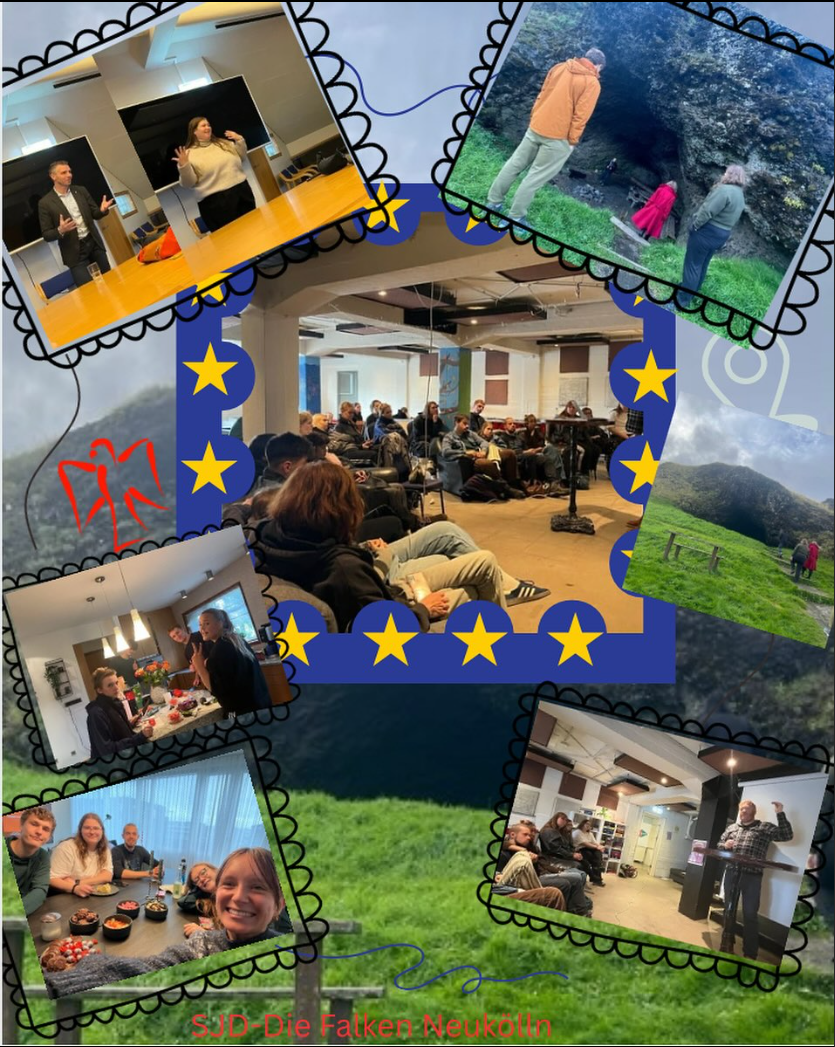

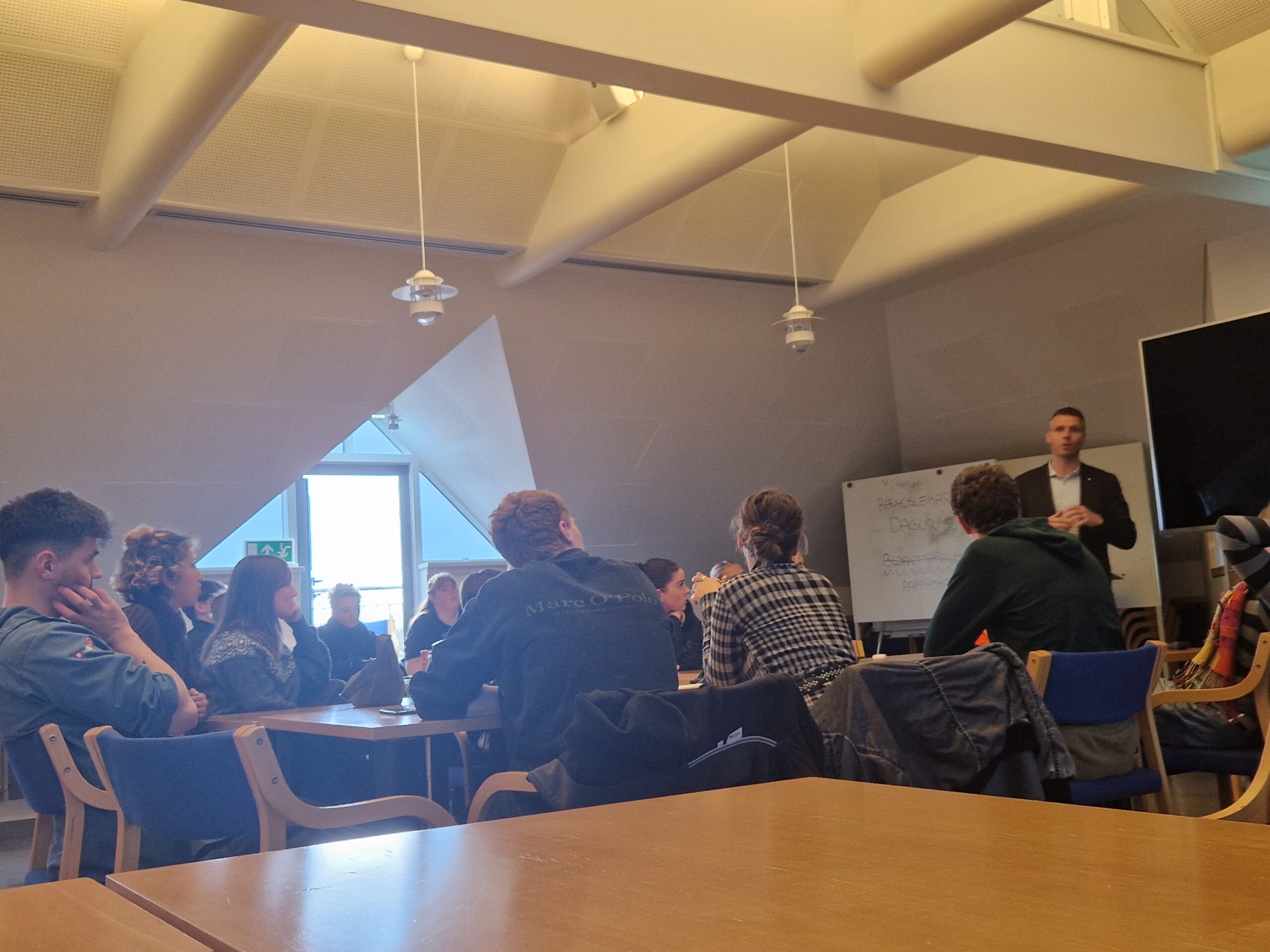
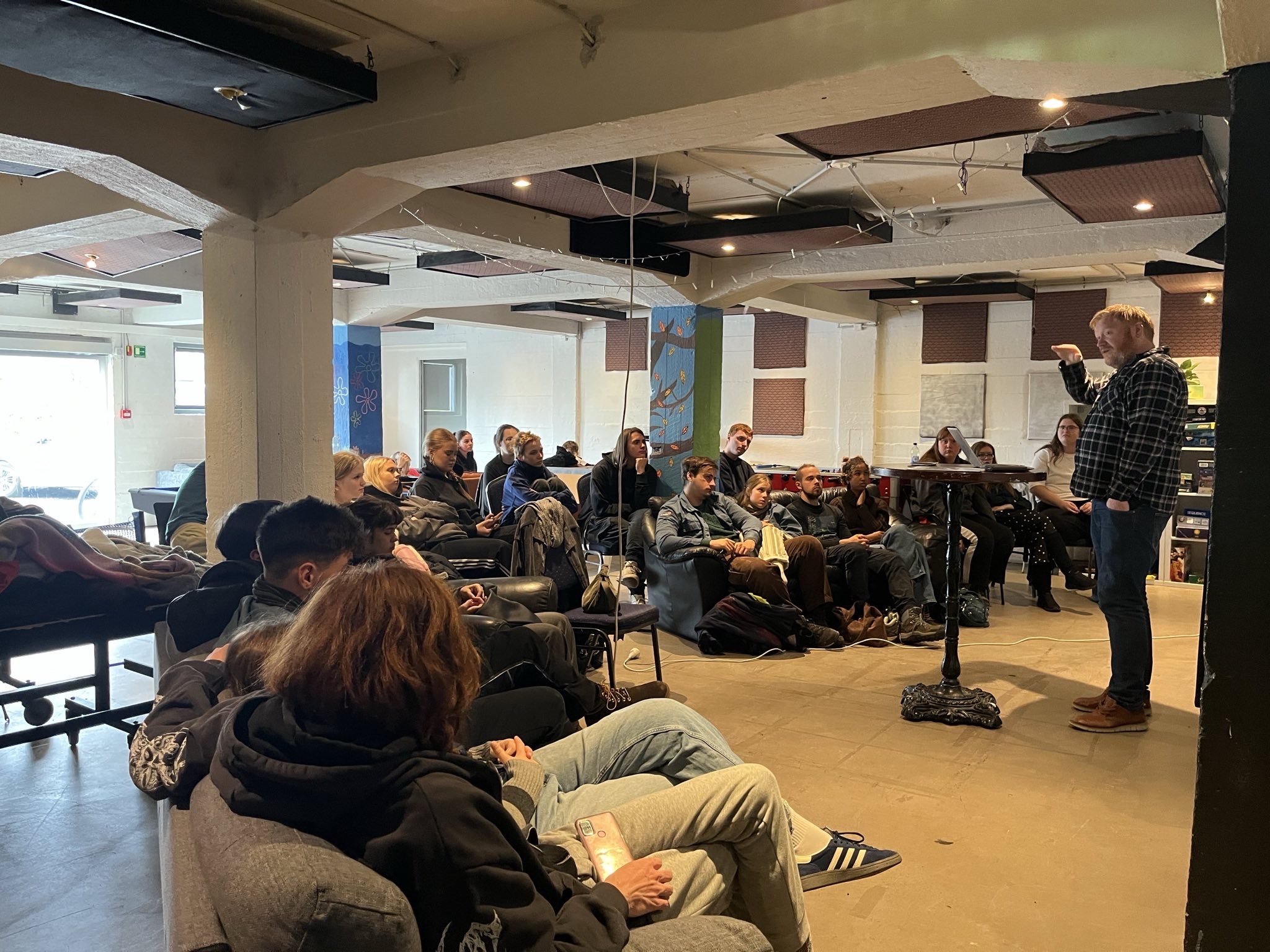
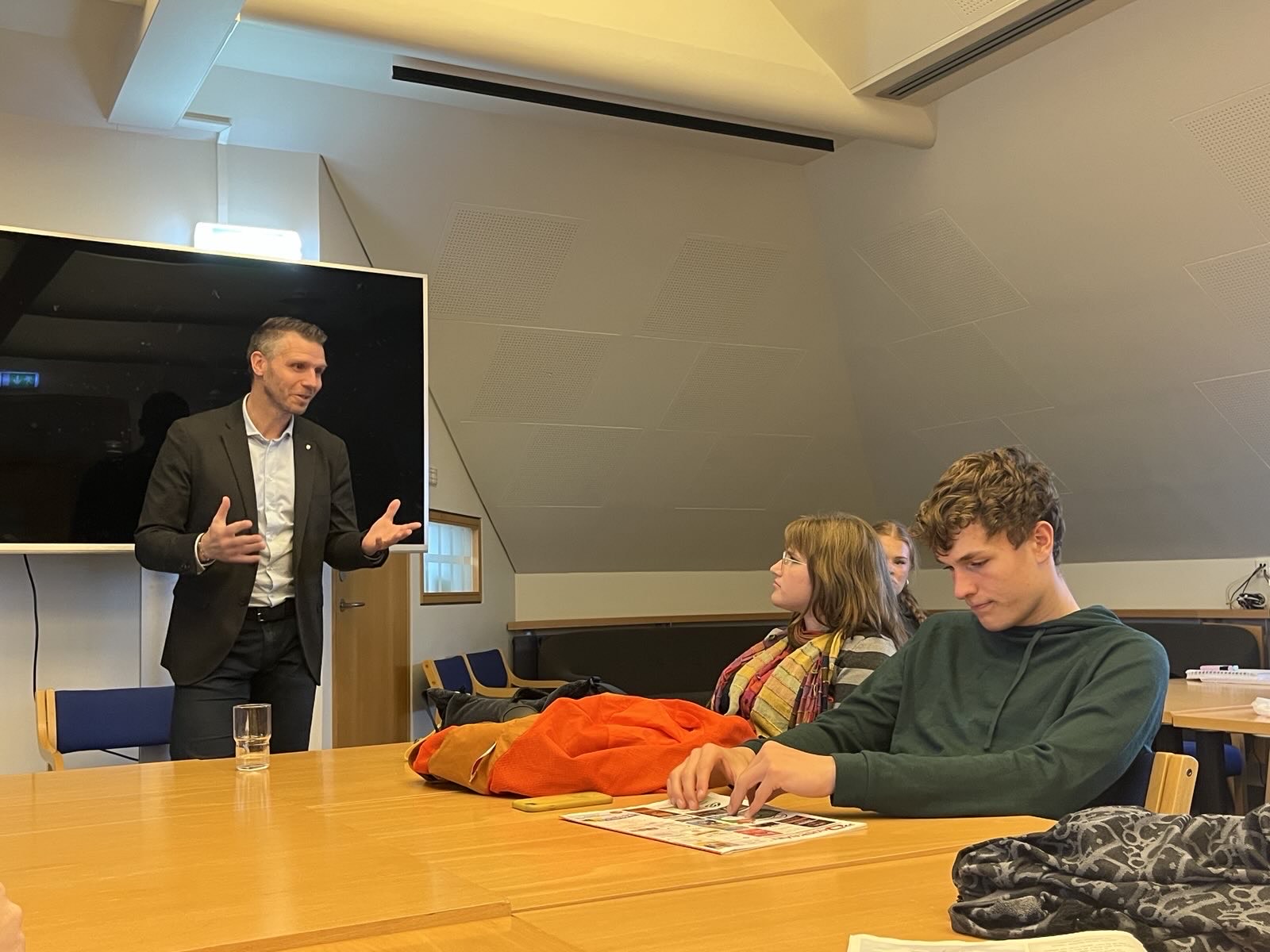
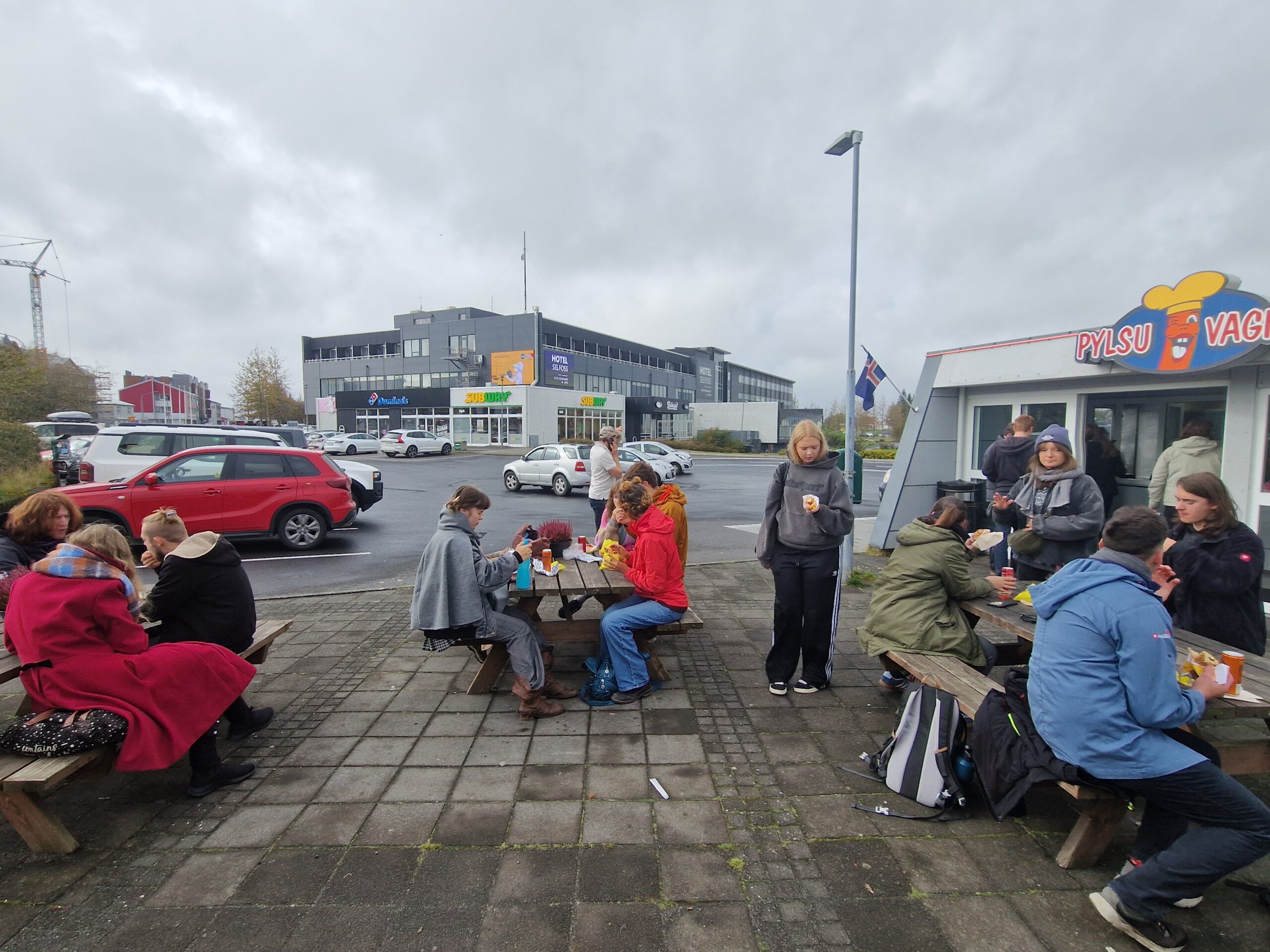
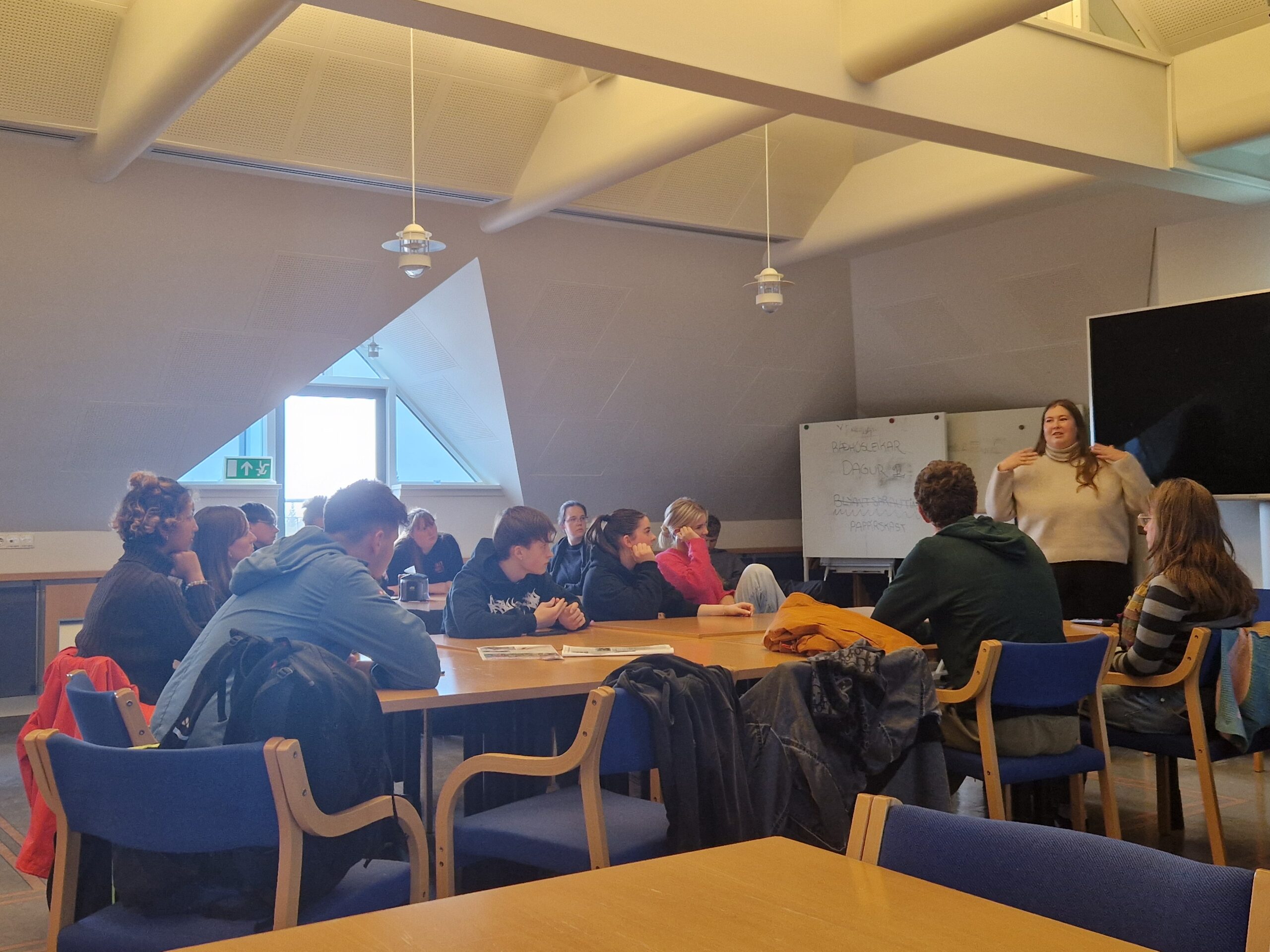
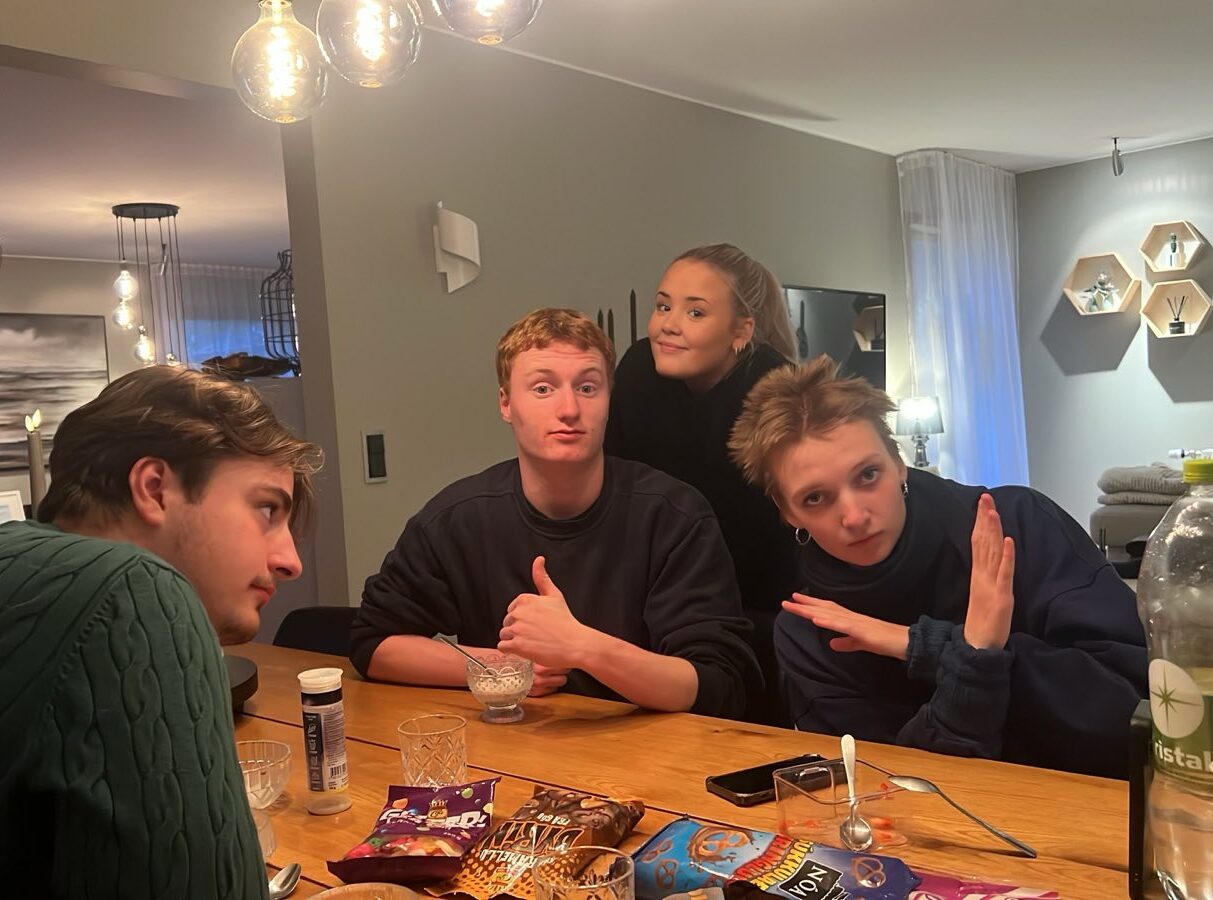
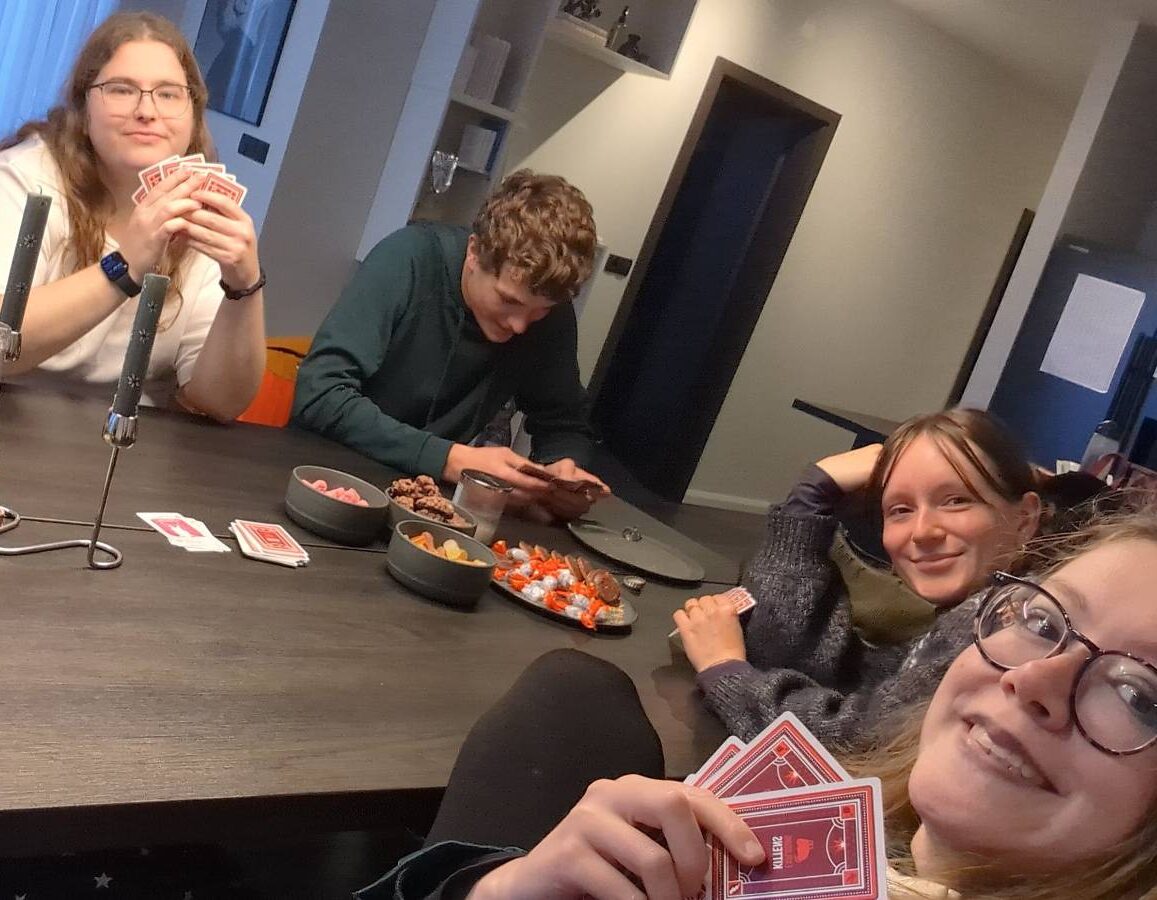

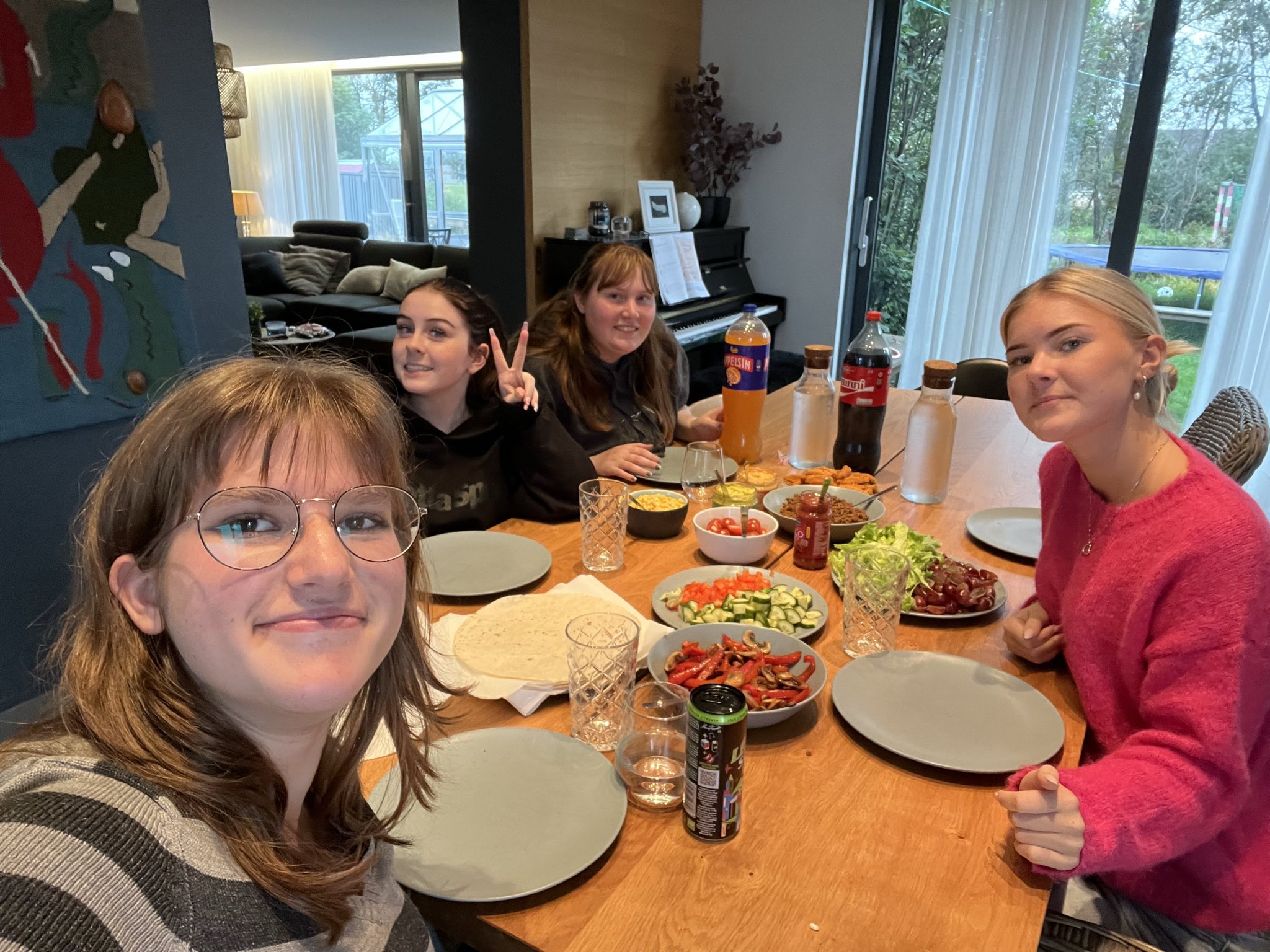
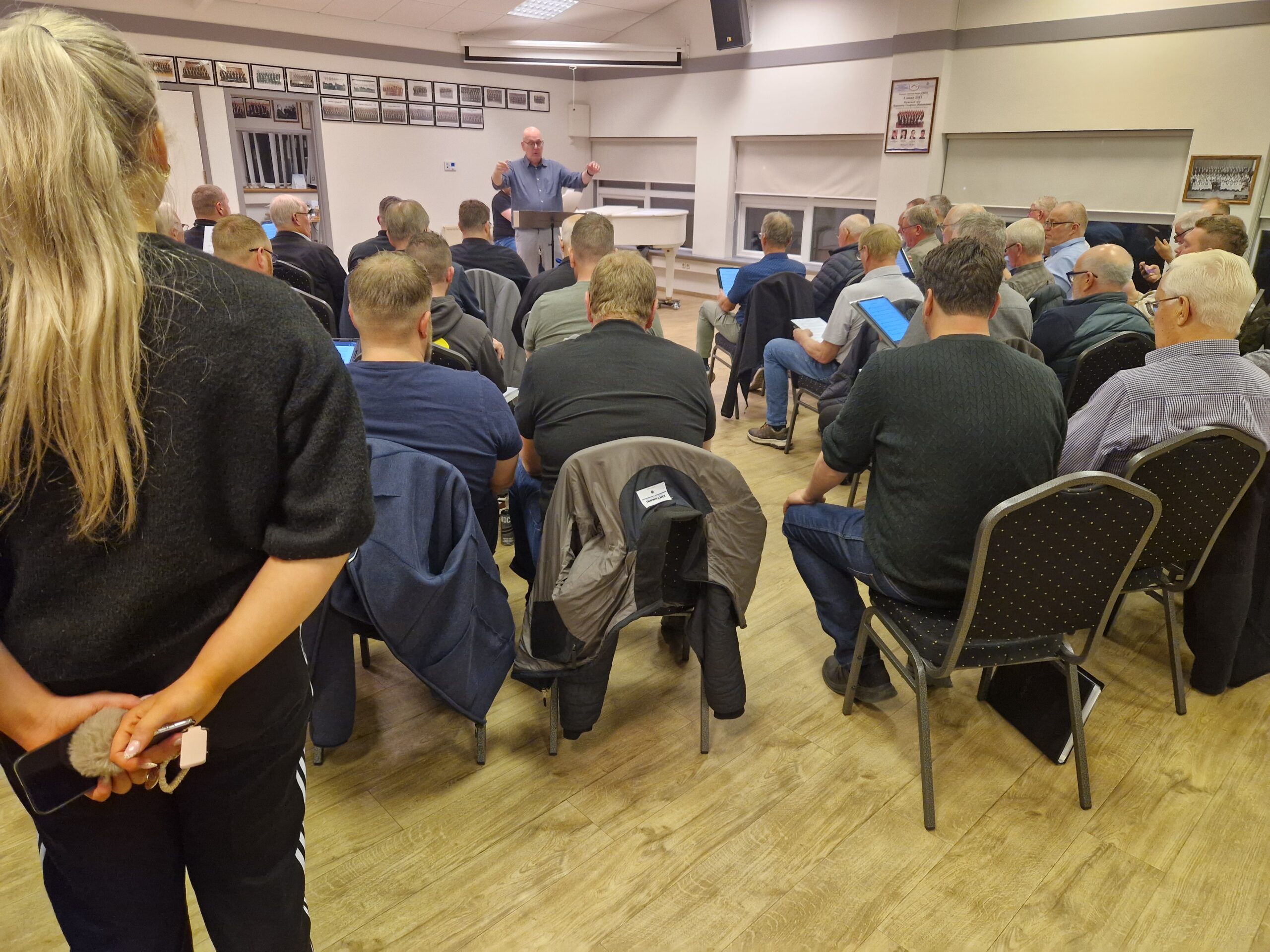
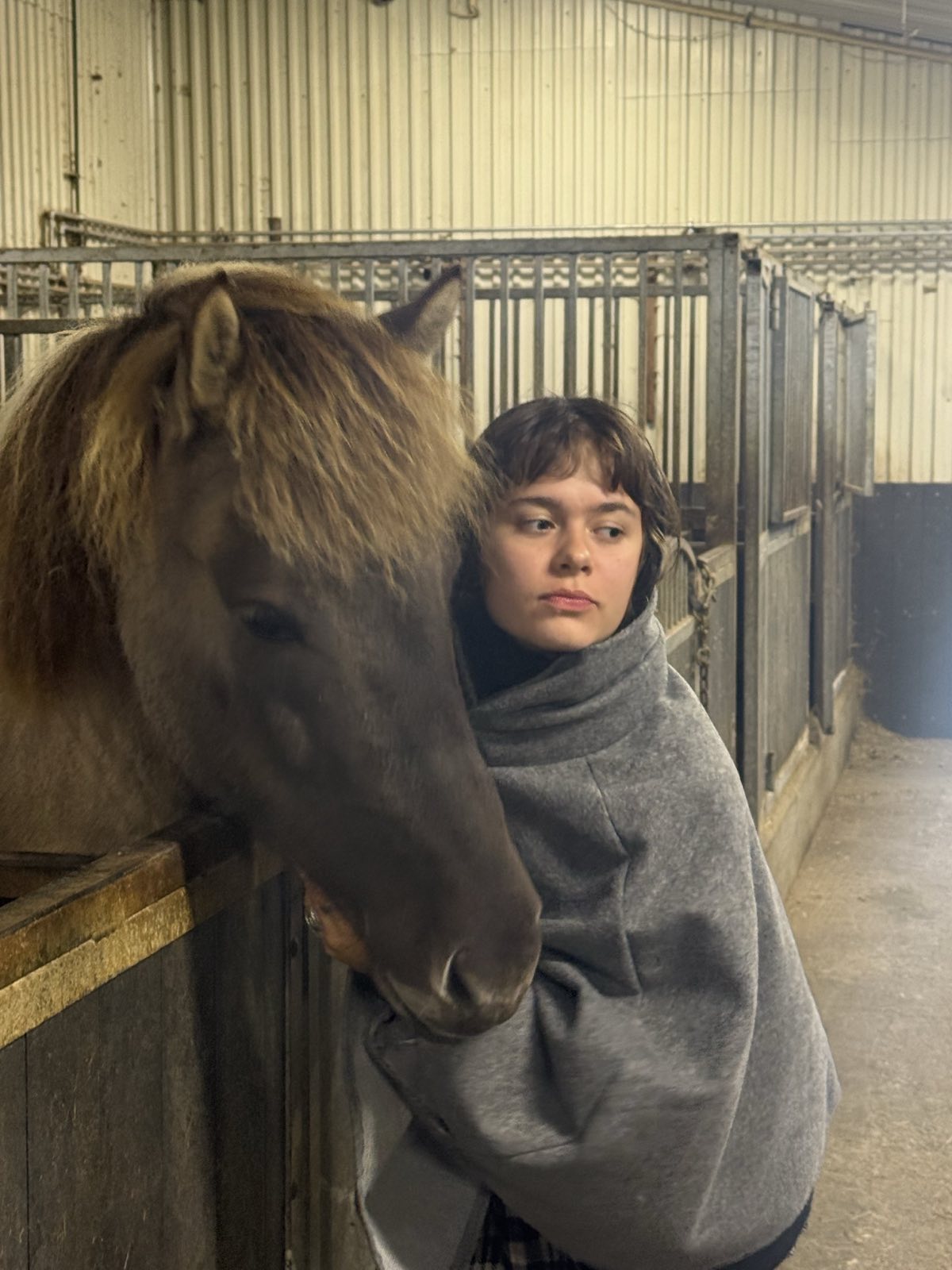
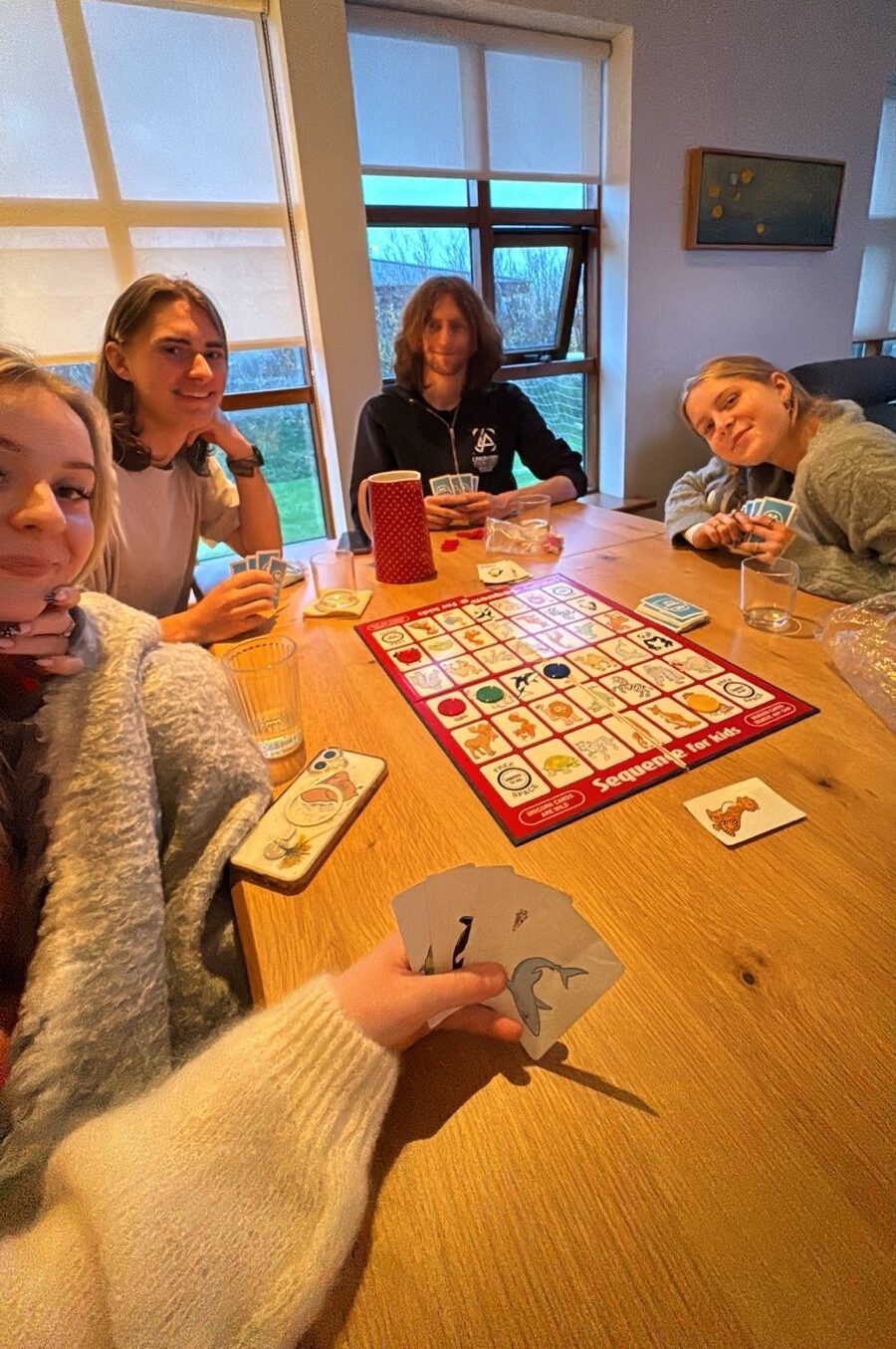
Du kannst der/die Erste sein